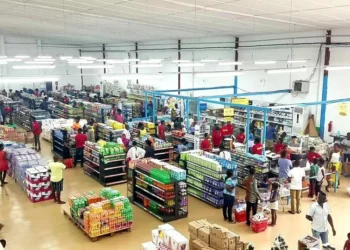The Women in Agricultural Development Department (WIAD) in the Tamale Metropolitan Assembly has urged;women farmers to add value to their commodities to improve on their product quality to suit world market standards. initially
Mrs. Denice Amponsah, an officer of WIAD said “a value chain is the best way to produce higher quality products and generate more income to women farmers to enhance their capability in commercial farming.”
She mentioned that adding value to food products sustains the nation’s food security. She also added that it ensures consumers have access to well packaged, preserved;and healthy foods, which would improve on their wellbeing. firstly
Mrs. Amponsah said this at a Northern Regional Engagement on COVID-19 and women access to the opportunities in the agricultural value chain, held in Tamale. The event was organized by Savannah Women Integrated Development Agency (SWIDA-GH) in partnership with SEND GHANA. It focused on generating evidence-based issues on the impact of COVID-19 on women farmers for advocacy engagement with state actors. moreover
According to GCA (2017/2018), targeting women farmers for special intervention will promote food and nutrition;security, economic empowerment and general livelihood. It stated that there is the need to ensure that female smallholder farmers are sensitized on the potential financial returns on investments in agriculture and trained in general business management.
“MoFA should collaborate with agricultural research institutions, financial institutions… to provide targeted support to women in agriculture,” it said.
Roles of Women in Agriculture
According to FAO, women make important contributions to the agricultural and rural economies of all regions of the world. Women produce 60-80 percent of the world’s food, and women are inherently better stewards of the environment than men.
The Executive Director of SWIDA-GH, Hajia Alima Sagito Saeed said women farmers play key roles in the informal and formal stages of food value chains. The roles include producing, processing, trading and consumption, she mentioned. She said fostering food value chains has become both a priority and a challenge for many stakeholders.
Regional and national policy makers seek to empower women farmers to create more job opportunities for them to enhance their livelihoods, she added. According to her, there was the need for policymakers to put in place efficient intervention to address challenges that existed between efficient value chains and gender equality.
On agricultural practices, the department advised the farmers to treat seeds with certified fungicides before nursing to enhance crop growth. WIAD urged the farmers to adopt crop protection measures such as removing and destroying diseased plants when detected early. This would prevent other healthy crops from being infected.
Madam Yakubu Rahinatu, Northern Regional Health Promoter, educated the women farmers on the COVID-19 measures. She said the women should avoid large gatherings and avoid contacting people. Madam Rahinatu advised them to wear face mask when going out and trading in the market. She added that they must use hand sanitizer when exchanging money with customers in the market and wash their hands often with soap under running water.
Read also: Share of total imports from China inch up by 8.1% year-on-year in 2020



















